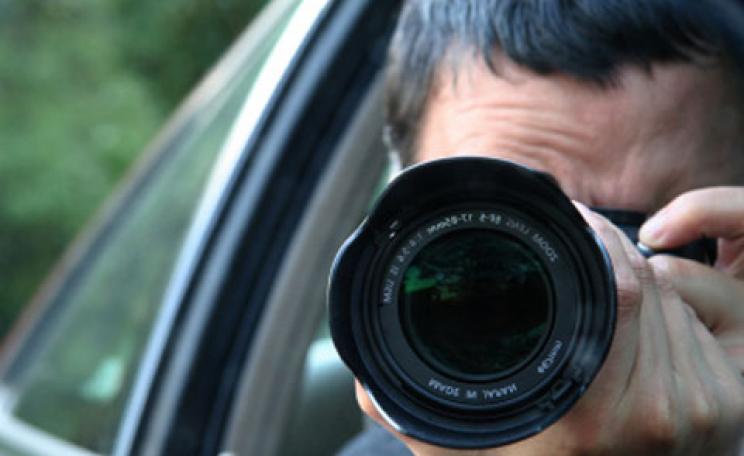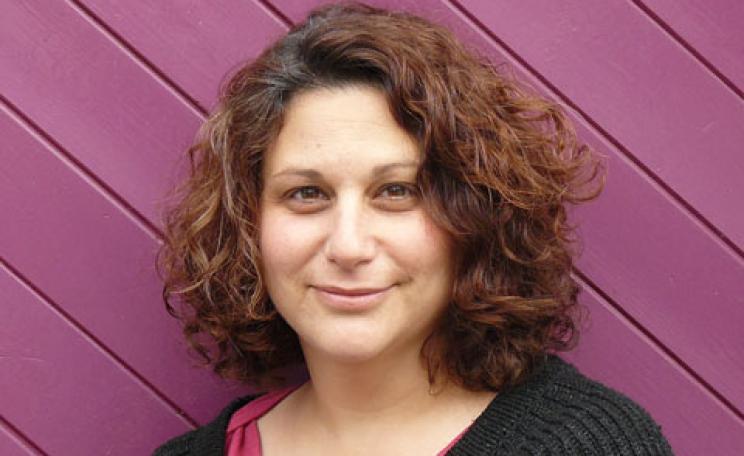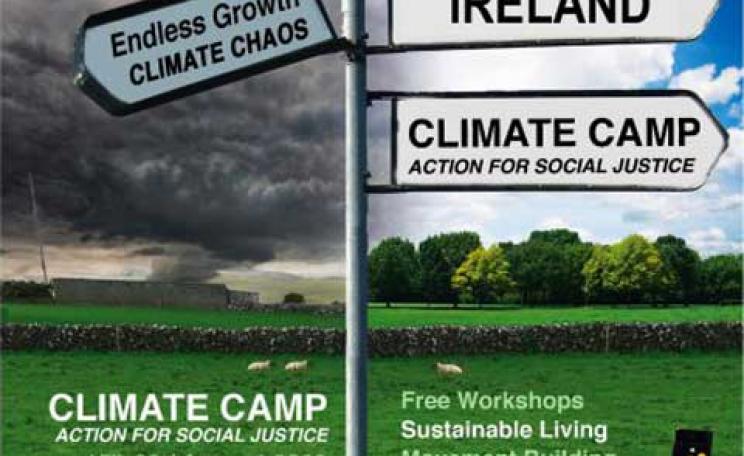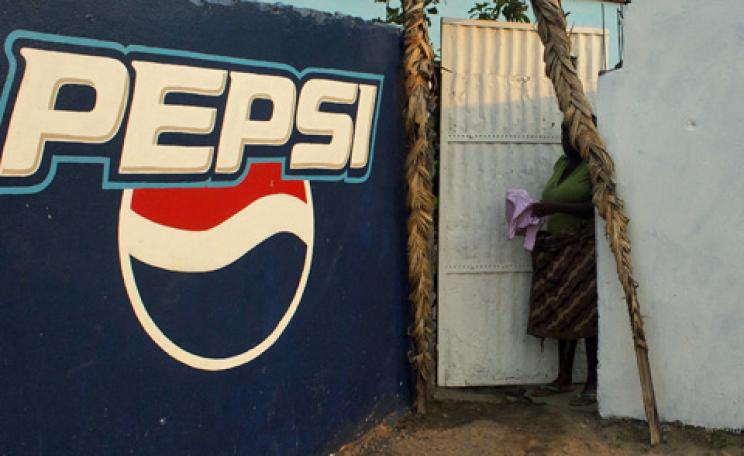More and more families are braving police hostility to join in environmental protests
‘Get her down, she’s scared…you’ll be charged with child abuse…we’ll arrest you.’ These threats were directed at Duncan Blinkhorn, a 49 year-old community events co-ordinator from Brighton and his then 11 year-old daughter Maya, as they perched on a fence outside the Radcliffe-On-Soar power station on October 17th 2009 holding a Don’t Burn Our Future banner.
The father and daughter were at a direct action organised by Camp For Climate Action and other groups demanding coal-fired stations be replaced with renewable energy infrastructure. ‘It was my idea to climb the fence so our banner could be seen by the cameras,’ explains Maya, who self-manages her education and wants to be a nurse or vet. ‘I told police I was fine but they wouldn’t listen. They threatened to arrest Duncan. That was scary but it hasn’t stopped me going on other actions. It’s my generation that will be affected by climate change. Having young people at demo’s makes a good point.’
After Radcliffe the Blinkhorn’s were investigated by social services. Footage from the day satisfied social workers Maya wasn’t coerced into participating and the case was dropped. Such scrutiny from the authorities is intended to deter families from attending actions, but in October Duncan and Maya joined Crude Awakening, a blockade of the Stanford-Le-Hope oil refinery. Rather than D-lock themselves to vehicles they helped create a ‘carnival atmosphere.’ Duncan brought a soundsystem in a suitcase while Maya hula-hooped, chalked anti-oil messages on the ground and posed for photos with oversized cigarettes she’d crafted with Addicted To Oil written down their sides. ‘I suppose we’re pushing the boundaries,’ confesses Duncan. ‘But allowing Maya to come on peaceful but assertive actions seems right. It’s a parental responsibility to help children understand the world they’re growing up in. Climate change inaction is bad parenting on a global scale. On a micro level we can turn that around.’
Having the moral upper hand doesn’t negate the very real prospect of arrest and leaving a minor unattended. Doesn’t it worry Duncan? ‘It’s not happened yet so if it did I would worry. But the people at these demo’s are like family. Maya would be in excellent hands.’
Duncan is the only interviewee in this piece who participates in direct action happy to use his real name. Many activists, particularly those prepared to use their bodies as physical barriers or damage property to access targets, use alias’s which campaign comrades and even their children use when police or potential undercover are in the vicinity. ‘I understand why activists do it but I don’t feel I need to,’ he says. ‘I’m happy to talk to anyone – police, students, other families - about what we do.’
Facing down the police and harassment
The dedication and bravery of the Blinkhorn’s is not unique. Families with lifestyles driven by their commitment to the environment are an increasingly common presence within activism circles and are participating in camps, direct actions, protests, publicity stunts and campaigns across the UK. Numbers of families involved nationally are unavailable but at last years Climate Camp, a temporary community in a claimed space that aims to promote sustainable living, an estimated 40 families attended despite previous camps experiencing harassment such as low flying helicopters playing loud music at 5am and violent evictions. Even at intervention camps, temporary communities formed to block environmentally destructive projects that tend to end in confrontations with police and industrial machinery, families, particularly at weekends and holidays, are a common sight.
Two years ago Sarah Finnie, a 42 year-old herbal medicine student and former nurse from Yorkshire and her then 11 year-old James spent their summer holiday at the Shell To Sea camp in County Mayo, Ireland. Shell To Sea is an uprising of local residents and activists against Shell’s aggressive move into the area to build a pipeline to transport recently discovered oil off the north west coast of Ireland. Sarah felt it imperative her son visited the site to understand the injustices of society. ‘Shell were doing everything on the cheap with no concern for the environment, health and livelihoods of locals,’ she explains. ‘Kids won’t see that side of life unless you show them.’
During their stay the mother and son helped cook communal meals, chop firewood and look after traumatised activists who’d had close calls with bulldozers. ‘I felt comfortable in support roles,’ Sarah explains. ‘It’s a way families can make a valuable contribution without putting themselves in immediate danger.’
Family areas at protest camps
After spaces have been claimed and camps set up these temporary communities are places where ideas are exchanged, skills shared and networks expanded. Children roam freely and are encouraged to get involved in the running of the community. Climate Camp has a crèche manned by volunteers so parents can attend or give workshops and for the 2011 Rainbow Circle Camp, a legal but environmentally focused event, a family dome is planned. ‘You meet people and families with similar values doing home schooling or living off grid and it gives you the knowledge and confidence to do those things yourself,’ Sarah explains. Camps are usually served an eviction notice. In theory this gives people, particularly families, a chance to leave before the cavalry arrives and truncheons swing, although it doesn’t always play out like that.
Witnessing direct action regularly normalises it to children, as Sarah discovered when after ten days at Shell To Sea James was determined to join the activists swimming in the sea to prevent work taking place. After careful consideration she agreed to let him do it with an experienced and trusted friend. ‘They weren’t trying to carry out any work and I kept a close eye on the situation. It was symbolic more than anything. I’m proud he wanted to do it.’
For Matthew and Barbara Robbins, activists with the Rising Tide collective, last year the tables were turned on the parent-child responsibility roles when at a direct action 32 year-old Matthew, who was bolting across a ploughed field heading towards a power station, looked back to see Barbara, his 64 year-old retired head teacher mother, gingerly picking her way across the field 100 yards behind. ‘After that I decided I was going to do actions that don’t require running,’ says Barbara. ‘I don’t want to hold Matthew back.’ Now Barbara plays a support role in actions such as making flags, organising meditation areas at camps and mediating disagreements. She introduced Matthew and his siblings to activism when they were children through her role in the Campaign For Nuclear Disarmament (CND) movement. For a few decades a time consuming job as a head teacher took her away from activism but since retiring she has been re-recruited by her son. ‘She exposed me to activism and now I’ve brought her back in,’ says Matthew. ‘We’ve gone full circle,’
Moral dilemmas
Matthew and Barbara’s circumstances are quite unusual. Most active family activist are parents and their underage progeny. Finding a balance between exercising due parental care and allowing children to participate in or watch morally justifiable but technically illegal actions is a challenge with boundaries that differ from family to family. At the currently occupied Huntington Lane camp in Shropshire, a settlement preventing UK Coal from opening a new mine, there’s a presence of two local families, Annie and Gary Collins and their 9 year-old Jasper, and Suzy Murphy with her 7 year-old daughter Eden. Gary is a full time activist and the Collins regularly sleep on site in temperatures as low as minus 10. Annie describes the camp as, ‘Jaspers playground.’ He gives tours to visitors, knows about ancient trees and cooks foraged nettles, wild garlic and scrambled eggs on his camp stove. Eden gets equally stuck in by helping chop wood, build benders and make teas.
 |
Despite both mothers heavy involvement with the camp – following case paperwork, collecting donations of food and equipment, using already stretched family budgets to buy communal supplies, raising awareness online, opening their homes to activists who need a hot bath - they don’t want their children present during site evictions and direct actions such as lock on’s. ‘I don’t want Jasper seeing confrontations like that,’ says Annie. ‘He has to first understand there are other ways of doing things.’ Wouldn’t it be distressing for him to watch a place torn down that’s been his second home for nearly a year? ‘It would. I don’t think you should shield children from the truth but you have to make a decision on a case-by-case basis...I want him to be open to the police and accept them as individuals. This could be challenging if he watched certain events.’
There is another army of committed families for whom the potential maelstrom of direct action and temporary camps keeps them away from such events, but their activism endeavours are just as valid and impacting.
Former science teacher Dina Baird is a mum to three children age 7, 9 and 11 and co-ordinator of Friends Of The Earth (FOE) Warrington and it’s Youth & Education advisory group. Dina considers every aspect of family life from the perspective of its environmental impact. In recent years they’ve become car-free and made a decision not to fly. Last December she mobilised her kids and their classmates to create Christmas cards from the future highlighting climate change issues to send to their local MP. Wary not to dictate she shows her children documentaries such as Food Inc and The Age Of Stupid and pauses the action to discuss what’s going on in child friendly terms. She says, ‘If they’ve had enough explanation in a way they can relate to they generally come to the same conclusions as I do.’
Fears of teenage rebellion
Dina’s children help out on FOE stalls by handing out leaflets and collecting signatures for petitions. ‘I only let them do that if they can talk about the issue – otherwise it wouldn’t be fair.’ Last year her eldest daughter held a banner for a FOE photo stunt calling for reform of the aviation bill and she appeared in a street theatre performance about fossil fuels called Old King Coal. ‘She really understands the issues,’ says Deena. ‘We’re lucky. At their school they get kudos for their knowledge.’
Parents able to inspire their children’s primary schools to follow environmental best practice can make a huge impact on local communities, as Suzy Murphy, mother of Eden and Huntington Lane supporter can testify. She has brought a string of ideas to Eden’s head teacher such as a recycling scheme, compost bins and a child led eco-team - all have been implemented. ‘If you approach it the right way you can massively change your local primary school,’ she says. ‘Even if Eden’s school wasn’t responsive I’d just annoy them appropriately until what’s best for the environment was put in place. If my child’s there I’m not having it any other way.’ Suzy is currently looking into flexi-schooling so Eden can divide her time between school and sites such as Huntington Lane where she can learn – ‘skills vital to life but aren’t in the curriculum’ – such as coppicing, conservation, and permaculture. ’If I do my research and write the proposal correctly I’ll get it agreed. You have to know your rights and remember schools work for you.’
National campaign groups Greenpeace, FOE, Campaign Against Climate Change (CACC) and Climate Camp don’t have strategies for specifically communicating to and mobilising families. Greenpeace doesn’t allow minors to participate in direct actions due to safety and legal implications although they can attend local meetings and FOE have a Youth & Education Network, often championed by parents, designed to help educate young people about environment issues. Despite differing approaches all groups believe the involvement of families in environmental and climate change campaigning is invaluable, particularly at public events such as demo’s, protests and risk free stunts. CACC have previously used families to deliver Climate Emergency Demands to the Prime Minister. National Co-ordinator Phil Thornhill says, ‘It’s symbolic to have children present as they are the one’s who will suffer from climate change. At a demo they have a positive influence on the atmosphere and reflect a broader spectrum of society rather than the usual suspects.’
Although family environmental activists differ in income, background and methods of participation there is common ground. Parents often have care, charity, education, creative or land based occupations. Many had politically active guardians and have early memories of being taken on demonstrations. Do their own backgrounds make them confident the experiences they’re offering their children today will instil a lifelong respect for the environment and willingness to politically engage and take action? They hope so - although jokes about children rebelling and becoming hedge fund managers are common. Suzy Murphy says, ‘Once a child understands food chains, the eco-system and what’s going on in the world on a larger scale, no one can take that knowledge away. Even if they rebe and go through a phase of wanting sports cars and glamorous things, once they’ve been opened to it, eventually this path will always come back to them.’
| READ MORE... | |
 |
NEWS ANALYSIS Climate Camp: saviour of the environmental movement? Hostile police tactics at the Kingsnorth and G20 camps has not put protesters off as climate camp goes global |
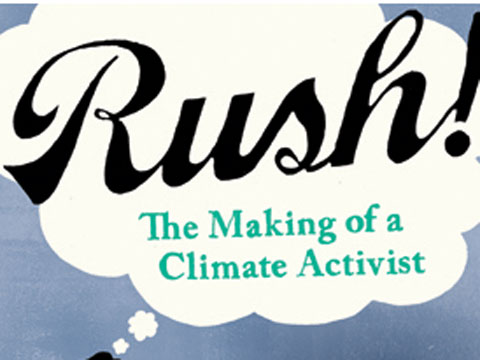 |
REVIEW Rush! The Making of a Climate Activist Tamsin Omond's personal account of her journey from carefree student to 'climate suffragette' explores the world of climate activism in a manner that can only inspire |
 |
HOW TO MAKE A DIFFERENCE The Ecologist guide to video activism The video camera is the weapon of choice for activists and campaigners around the world, with campaign films an effective way to get a message across and fight back against mainstream media bias. Here's our guide to taking your stand... |
 |
HOW TO MAKE A DIFFERENCE Info-activism: using technology to force social change A must-see documentary explores how campaigners are successfully using new technologies and tactics to change the status quo |
 |
VIDEO Just do it movie: direct action in the UK A documentary that follows UK climate activists as they take on the combined forces of global capitalism, run-away climate change and the metropolitan police. Set for release in early 2011 |



